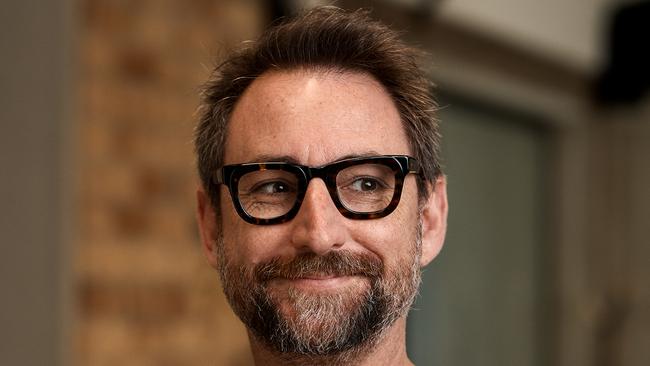Why brands must build marketing and advertising strategies to meet ‘future demand’
Advertising effectiveness expert James Hurman shares a preview of his upcoming keynote on driving “future demand”, as top marketers and ad agency leaders gather in Sydney at Telstra‘s headquarters next week.

International marketing effectiveness expert James Hurman will deliver a keynote speech in Sydney next week on the topic of how marketers and ad agencies can demonstrate the efficacy of advertising, improve return on investment and drive sustainable business growth.
Amid a tightening economic landscape, the topic of balancing short and long-term marketing and advertising will top the agenda of the session next week, which will take place at Telstra’s headquarters.
Run by Advertising Council Australia and the Australian Association of National Advertisers, the event will see Mr Hurman joined by top marketing minds including Telstra’s chief marketing officer, Brent Smart.
Speakers in attendance also include McDonald’s chief customer officer Chris Brown and ad agency leaders Alison Tilling, chief strategy officer at VMLY&R, and Fran Clayton, DDB Sydney’s chief strategy officer.
Mr Hurman is author of marketing tomes The Case for Creativity and Future Demand, the founder of NZ strategy consultancy Previously Unavailable, and has studied creativity and advertising effectiveness at length throughout his career. His work also includes a ground-breaking 2020 study with Cannes Lions and the World Advertising Research Centre, which demonstrated how creativity drives specific marketing outcomes.
Speaking exclusively to The Growth Agenda, Mr Hurman offered an insight into his evidence-based contention for the event, which focuses on marketing for “future demand”.
The principle of future demand is centred on the premise that advertising effectiveness is inextricably linked to the degree to which a brand can balance driving short-term sales with long-term brand-building, the latter of which research has found is essential to secure customers in the future.
Building brand in perpetuity
The aphorism “Good things come to those who wait” famously occupies prime creative real estate on an iconic Guinness beer advertisement, but it’s also an apt description of how long-term brand marketing can help companies grow.
In recent decades, an abundance of data and subsequent insights has equipped business leaders with many proof points about what makes advertising work.
“One of the things that we’ve really uncovered and dug deep on – and there’s a lot more evidence around – is the fact advertising works in the way that most of us kind of think advertising works in the short term,” Mr Hurman said.
But looking at short term performance, such as sales generated, Mr Hurman argues, paints only part of the advertising effectiveness picture, as research shows that advertising has much longer-term effects.
These longer-term effects can be growth-driving or cause some inertia, depending on how marketing and advertising budgets are split, who they are targeted at, and how their success is measured.
This is especially topical now, Mr Hurman added, as boards and business leaders scrutinise their balance sheets, including their marketing line items.
The degree to which the marketing budgets are impacted can affect future success, not only in making important short-term gains but weathering times of economic uncertainty and emerging in a stronger position on the other side.
Evidence of this can also be found in industry examples from the past, where businesses that have doubled down on brand-building in recessionary environments, have proven more resilient in the long term. In the often-cited case of Procter & Gamble, the multinational has historically invested in brand-building during times of economic uncertainty; most recently, it increased its spend during Covid as part of its strategy to position itself to recover with greater strength than competitors that cut back, when the economic tides turn.
Making the business of creativity work
Creativity plays a critical role in effectiveness, Mr Hurman said, which has become clearer as marketers have larger bodies of data to mine than ever before – and especially as brands look to create future demand and build growth in the long term.
“Creativity is so important, because that is all about making people feel familiar with us, which means we need to stand out; we need them to know about us and hear about us; we need them to like us and people like creative things. And we need them to remember us ,” he said.
“Campaigns with creative qualities are vastly more likely to be remembered and recalled than campaigns without those qualities. That’s really where creativity’s main work is done; in producing work that’s capable of getting into the minds and getting the attention of all of those people who aren’t even ready to buy from the category yet.
“That’s what we see great creative work do – it stands out, it entertains, and it sets the brand up.
“Often the most creative campaigns generate a lot of fame, a lot of earned impressions and media value. And those sorts of things make the budget go even further.
“Creativity really does its best when we’re talking to that audience that we want to be our customers in the future.”
Balancing existing and future demand
“In any category, there are two types of demand: there’s what we call existing demand – which is the people who are in the category and ready to buy now – and what we call the future demand, who are customers who aren’t in the category yet, but they’re going to come in at some point and be ready to buy,” Mr Hurman said. Meeting existing demand is well understood – and Mr Hurman said it is tempting for businesses to focus on catering to narrow audiences in times of uncertainty.
However, while marketers must work to convert those people who are in the market today into paying customers, a large proportion of their job is to capture the hearts and minds of broader groups of people who may become customers in the future, he said.
He said this means investing in brand-building, and advertising and marketing to cultivate those highly valuable emotional connections with customers.
“Your job isn’t to try and sell them something that they’re not ready to buy; your job is to make them feel a familiarity to you, a kind of emotional warmth to like you, and ultimately to remember you,” Mr Hurman said.
“We tend to over accentuate our communication to that very small group of people who are in the category today. And we under accentuate that job that we’ve got to do to go out and build that brand familiarity among that audience who are going to be the majority of people that we’re going to sell to in the future.
“And if we just do that first job, then there’s no compounding effect from doing that.
“Performance marketing is very much a ‘point in time’ thing. Brand is a constant gardening thing. It benefits from consistency over the long term.”
Ultimately, Mr Hurman said, discussions about brand at a board level come back to an understanding – at the core of the business – of what it stands for.
“What has become more apparent to me over time is that brand isn’t advertising,” he said.
“And it’s not even really marketing. Brand is, at its best, a really clear, simple idea that’s at the heart of a company, impacting everything that they do and all of their decisions. And some of those happen to be marketing. And some of those happen to be advertising.
“That’s one thing for c-suites and boards to think more about is; ‘Are we really clear on what this company stands for? And are we executing on that through everything that we do? And is marketing and advertising amplifying that for us?’”
The Effectiveness Masterclass takes place in Sydney on 17 May.







